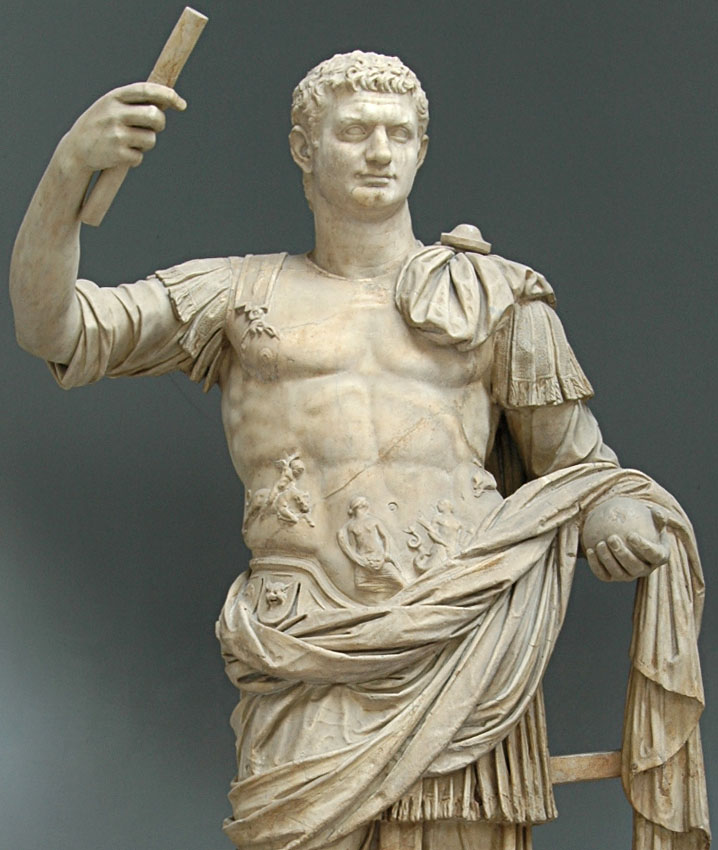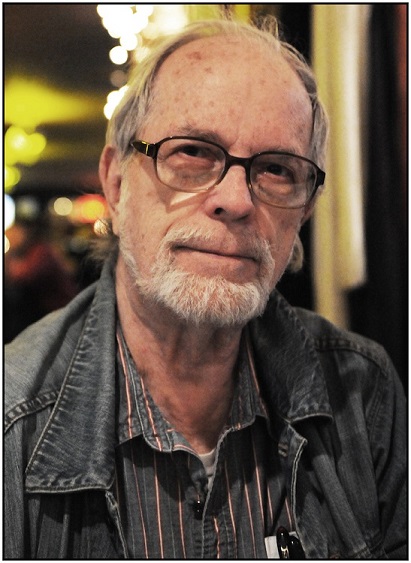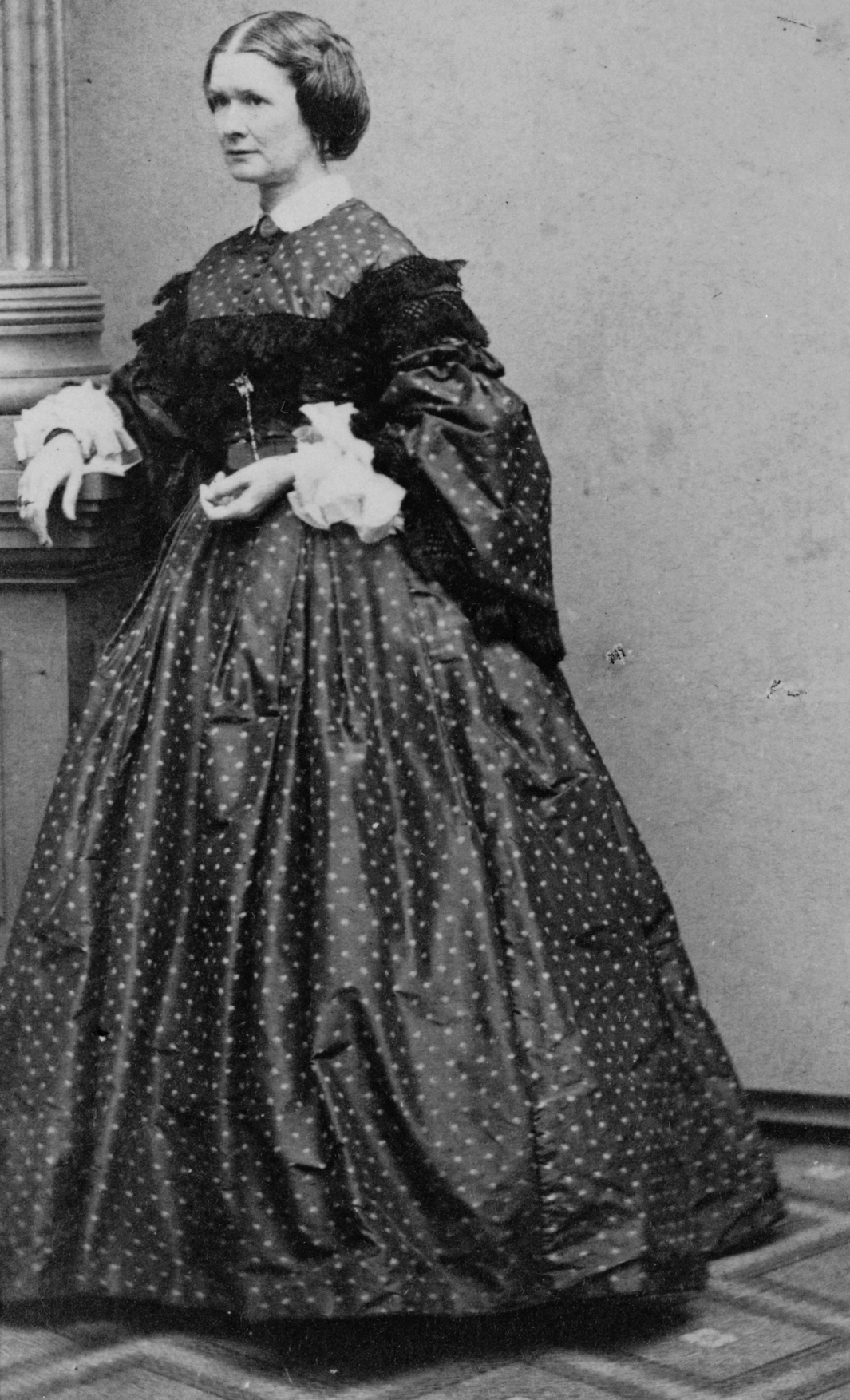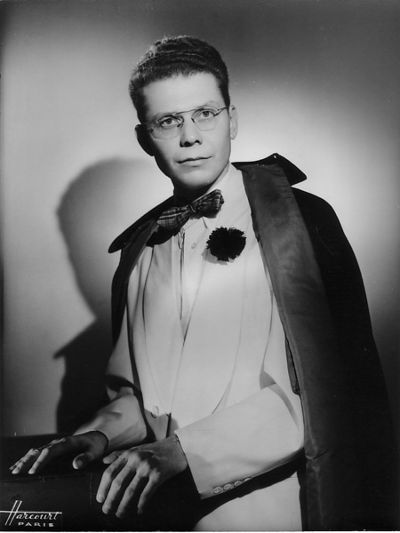|
Gay Wisdom for Daily Living brought to you by White Crane Institute ͏ ͏ ͏ ͏ ͏ ͏ ͏ ͏ ͏ ͏ ͏ ͏ ͏ ͏ ͏ ͏ ͏ ͏ ͏ ͏ ͏ ͏ ͏ ͏ ͏ ͏ ͏ ͏ ͏ ͏ ͏ ͏ ͏ ͏ ͏ ͏ ͏ ͏ ͏ ͏ ͏ ͏ ͏ ͏ ͏ ͏ ͏ ͏ ͏ ͏ ͏ ͏ ͏ ͏ ͏ ͏ ͏ ͏ ͏ ͏ ͏ ͏ ͏ ͏ ͏ ͏ ͏ ͏ ͏ ͏ ͏ ͏ ͏ ͏ ͏ ͏ ͏ ͏ ͏ ͏ ͏ ͏ ͏ ͏ ͏ ͏ ͏ ͏ ͏ ͏ ͏ ͏ ͏ ͏ ͏ ͏ ͏ ͏ ͏ ͏ ͏ ͏ ͏ ͏ ͏ ͏ ͏ ͏ ͏ ͏ ͏ ͏ ͏ ͏ ͏ ͏ ͏ ͏ ͏ ͏ ͏ ͏ ͏ ͏ ͏ ͏ ͏ ͏ ͏ ͏ ͏ ͏ ͏
|
|
||||
| This Day in Gay History | ||||
October 25Born 0051 - DOMITIAN (Titus Flavius Domitianus) Roman emperor, born (d: 96 C.E.); a Roman Emperor who reigned from October 14, 81 CE until his death on 18 September 18, 96 CE. Domitian was the last emperor of the Flavian dynasty, which ruled the Roman Empire between 69 and 96, encompassing the reigns of Domitian's father Vespasian (69–79), his elder brother Titus (79-81), and finally Domitian's own. Domitian's greatest passions were the arts and the games. He implemented the Capitoline Games in 87 CE. Like the Olympic Games, they were to be held every four years and included athletic displays, chariot races, but also oratory, music and acting competitions. The Emperor himself supported the travels of competitors from the whole empire and attributed the prizes. He was also very fond of gladiator shows and added important innovations like female and dwarf gladiator fights. Much fuss is made and a great deal of misinformation about the wives he left for new wives, and wives who were found in the arms of actors. Particularly one actor, Paris. Wives, wives, wives! But in point of fact it was Domitian who left his wife Domitia for handsome actor Paris, ditching Domitia despite the shock (and delight) averred by all of Rome. OK…ok…not too long after, he threw Paris out for cuckolding him with Domitia, who he then promptly took back. Good idea, I suppose, to keep someone like her close to you. Bad choice, one might say, since Domitia saw to it that her husband (lost? Domitian, the emperor husband…try to keep up) was promptly murdered. 1929 - For more than three decades, DAVID McREYNOLDS , who was born on this date (d: 2018) was among the most outspoken socialists and pacifists in America, a leftist organizer who combined a belief in wealth redistribution with a fierce opposition to the Vietnam War and nuclear weapons. As a leader of the War Resisters League, he spurred a wave of antiwar demonstrations in 1965, when he joined four other men in lighting their draft cards on fire, defying a federal law that could have sent him to prison for five years and earned him a $10,000 fine. He went on to become one of the first candidates to come out as Gay to run for Congress and president. Although he never came close to winning office, he helped “define modern pacifism in the United States,” said his friend Bruce Cronin, chair of the political science department at the City College of New York. McReynolds, who died in August 2018 at a hospital in Manhattan, drew the attention of the FBI and landed in jail several times as a result of his activism. His political career was all the more remarkable given his upbringing in Los Angeles, where he was raised by a family of conservative Baptists and joined the Prohibition Party in his youth. Though he came to don tie-dye shirts, beads and patchouli cologne with other Vietnam-era peaceniks, he honed his public speaking skills with a group called the Traveling Temperance Talking Team, in which sharply dressed teenagers competed to see who could best denounce the evils of alcohol. Indeed, McReynolds was described as more professorial than proletarian, with interests that ranged far beyond political rallies and campaigns. He was a prolific photographer, taking more than 50,000 pictures of New York City streetscapes and activists such as the gay civil rights leader Bayard Rustin (whom McReynolds described as a mentor) and the pacifist A.J. Muste (for whom he worked as a top lieutenant). McReynolds was also a member of the Bromeliad Society, an international botanical group, and filled his East Village apartment with tropical plants and hundreds of bottles of perfume, which he created himself and arranged on floor-to-ceiling shelves. He was found unconscious in the apartment Wednesday, several weeks after suffering a fall, said his younger brother, Martin McReynolds. Active in the anti-Korean War and civil rights movements, McReynolds joined the War Resisters League in 1960 and was soon named field secretary. Alongside Norma Becker and Sidney Peck, he became a behind-the-scenes architect of the anti-Vietnam War movement, Cronin said, known for maintaining unity in a coalition that included members of the political left and right. “If you can bring together labor, teachers, students, folks from all walks of life, then you can turn the country. That’s painstaking work,” said Cronin, who met McReynolds while preparing for a 1982 nuclear disarmament rally that, by some estimates, drew 1 million people to Central Park. “It took somebody like David to bring people together and say, ‘Look, let’s keep the focus on what we want and not break up over trifles.’” Among the league’s most controversial actions was the burning of draft cards. McReynolds made national headlines when he appeared on a wooden platform in Manhattan’s Union Square to burn his card on Nov. 6, 1965, amid counterprotests from a group chanting, “Drop dead, red.” The burning was interrupted, the New York Times reported, when a man sprayed McReynolds and his fellow demonstrators with a fire extinguisher: “The pacifists managed to dry the cards over the flame of a cigarette lighter, however, and the cards burned crisply.” At 36, McReynolds was the oldest member of the group, which included Tom Cornell, Marc Paul Edelman, Roy Lisker and James Wilson. While the others were indicted on charges of defacing their cards (three were sentenced to six months in prison), McReynolds was left alone, reportedly because he was too old to be drafted. He went on to coordinate antiwar rallies across the country and twice met with dissident groups in Vietnam. According to “A Saving Remnant,” a biography of McReynolds by Martin Duberman, he was visiting Czechoslovakia when the Soviets invaded in 1968 to quash the Prague Spring. McReynolds — who said he was a socialist, not a communist — was able to return to the United States in time to run for a U.S. House seat that fall, on Eldridge Cleaver's Peace and Freedom ticket. As in 1958, during his first bid for Congress, he was crushed, receiving just 5% of the vote. Undaunted, he went on to run for president with the Socialist Party USA in 1980, on a platform that called for nuclear disarmament, the breakup of large corporations and sharp reductions in military spending. “We have no illusions that we will win the presidential election,” he said after a rally with his running mate Diane Drufenbrock, a nun. “Our purpose is to make possible a discussion of socialism and to raise issues on foreign policy and unemployment.” McReynolds received fewer than 7,000 votes. He ran once more, in 2000, and four years later mounted a Green Party campaign for the U.S. Senate seat held by Democrat Charles E. Schumer of New York. In part, he said, his electoral defeats could be chalked up to an imaging problem in a country where “socialism” has long been a dirty word. “One of the tragedies is that the things a Socialist candidate will say are things that really could be said by a compassionate and moderately insightful Republican,” he told the Progressive magazine in 2000. “If I say we should have much greater mass transit in the major cities, that we should be able to rebuild the railroad system so that Amtrak actually connects all the small towns, that’s a reasonable thing. It’s not a radical proposal.” David Ernest McReynolds was born in Los Angeles on Oct. 25, 1929, one day after the Black Thursday stock market crash signaled the beginning of the Depression. Died 1882 - EMMA STEBBINS, American sculptor, died (b: 1815); Born and raised in a wealthy New York family, Stebbins was encouraged by her family in her pursuit of art from an early age. In 1857, sponsored by her brother Col. Henry G. Stebbins, head of the New York Stock Exchange, she moved to Rome where she studied under John Gibson an English neo-classicist working there at that time. In Rome she fell in love with actress Charlotte Saunders Cushman, and quickly became involved in the bohemian and feminist Lesbian lifestyle, which was more tolerated there than it would have been back in New York. Cushman was confidant, strong, and charismatic, and recently recovering from a break up following a ten-year relationship with the actress Matilda Hays. Cushman and Stebbins began travelling together, immediately taking a trip to Naples. Upon their return, they began spending time in a circle of fellow Lesbians that included sculptor Harriet Hosmer and African-American/Native American American sculptor Edmonia Lewis/Mary Lewis. In this environment, the women flourished without regard for showing outward affection for one another. One of Stebbins' early commissions was a portrait bust of Cushman between 1859-1860. In 1869, Cushman was treated for breast cancer. Stebbins devoted all her time during that ordeal to nursing her lover, ignoring her work during the next two years. The following year, the couple returned to the United States. Cushman died of pneumonia in 1876 at the age of 59. Following the death of Cushman, Stebbins never produced another sculpture. She released the correspondence, Charlotte Cushman: Her Letters and Memories of Her Life in 1878. Stebbins died in New York in 1882, at the age of 67. 1980 - VIRGIL FOX, American organist died (b. 1912); A renowned organist, known especially for his flamboyant "Heavy Organ" concerts of the music of Bach. These groundbreaking events appealed to audiences in the 1970s who were more familiar with rock and roll music, and were staged complete with light shows. In 1946, the Riverside Church in Manhattan hired a "partnership" (term used in The Church Monthly) of Organist Virgil Fox and Choir Director Richard Weagly who were a Gay couple openly living together. Fox’s many recordings made on the RCA Victor and Capitol labels, mostly in the 1950s and 1960s, have been re-mastered and re-released on CD in recent years. They continue to be widely available in mainstream music stores. In his long and brilliant career, Virgil Fox gave recitals on practically every important organ in the world. He inaugurated the Rodgers Carnegie Hall organ in 1974, which he had designed. In 1977, to celebrate the 50th anniversary of his concert debut, he played a sold-out concert ("The Bach Gamut") at Kennedy Center and in Tokyo, Japan at NHK Hall; and performed the Joseph Jongen Symphonie Concertante with the NHK Symphony. Perhaps the most daring concert Virgil Fox ever played was at the Mecca of rock music, New York's Fillmore East, where, in 1970, he gave an all-Bach program combined with a light show on the Rodgers Touring Organ. Virgil Fox is credited with bringing the music of Bach to young people with an innovative and exciting style, although he often drew adverse criticism from some of his colleagues in the organ world and from those music critics who found his approach too flamboyant. Fox, who affected a beret and a crimson-lined black cape, and drove around in a pink Cadillac convertible, didn't care what anybody thought about who he was. "How good to see you, Lawrence, Honey," one of his students, Ted Alan Worth, recalled hearing him address a Riverside Church dignitary from the organ console after a Sunday service. The reply was shocked: "I'm not your honey, and kindly never address me that way again." But as Worth noted in a memoir, to Fox everyone was Honey. "To anyone who was gay, there was no question as to what Virgil was," Worth wrote, and Fox made no bones about being gay. "He was quite proud of what he was, and never once did he feel the slightest bit second class." | ||||
|
|8|O|8|O|8|O|8|O|8|O|8|O|8|O|8| Gay Wisdom for Daily Living from White Crane Institute "With the increasing commodification of gay news, views, and culture by powerful corporate interests, having a strong independent voice in our community is all the more important. White Crane is one of the last brave standouts in this bland new world... a triumph over the looming mediocrity of the mainstream Gay world." - Mark Thompson Exploring Gay Wisdom & Culture since 1989! |8|O|8|O|8|O|8|O|8|O|8|O|8|O|8| | ||||
|
|||||
|





